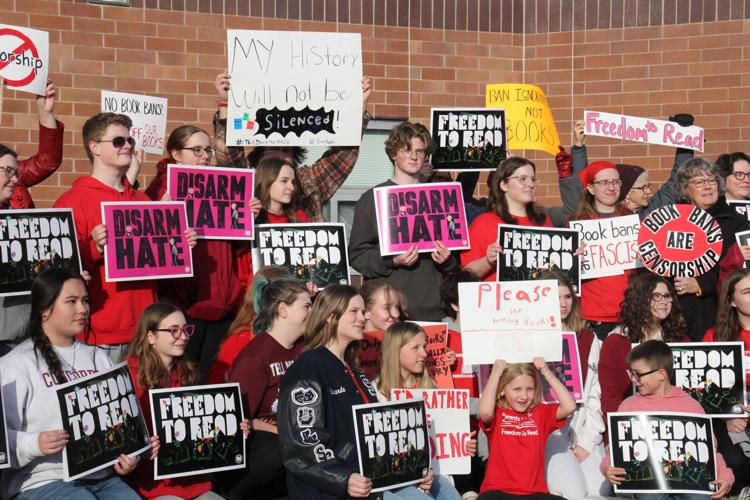When Our Books Vanish, So Do Our Voices: Why Local Elections Matter

By: Jenna Pakirtzis
May 13, 2025
Just outside the Twin Cities, the small town of St. Francis has become a focal point in the escalating battle against censorship. Cherished books that once broadened students’ horizons are vanishing from library shelves, banned under a district policy that delegates censorship decisions to a contentious book-rating website. Remarkably, this all traces back to a local election with minimal voter turnout.
Books like The Handmaid’s Tale, The Perks of Being a Wallflower, and A Court of Thorns and Roses were recently removed from St. Francis Area Schools’ libraries. This change stems from a 2024 school board policy that relies on ratings from RatedBooks.org—a crowdsourced site lacking formal educational oversight—instead of input from educators or the community.
A local parent shared that the site permits a select group of pre-approved reviewers to submit book reports, but “there are no academic standards,” she explained. Books featuring LGBTQ+ characters or authored by people of color frequently receive disproportionately high “concern” scores, resulting in their automatic removal from St. Francis school libraries.
Even books with uplifting messages and suitable themes for young readers are being targeted. For instance, the young adult novel Moxie would be banned under St. Francis’s current policy due to its rating. One so-called “controversial” quote used to justify its removal reads: “This is what it means to be a feminist… girls supporting each other and wanting to be treated like human beings in a world that’s always finding ways to tell them they’re not.” It’s not just explicit content being censored—it’s the exchange of ideas and the pursuit of knowledge.
The parent I spoke with, who has two children in the district, has been actively opposing the ban since learning about it. In just a few weeks, she helped mobilize a grassroots movement with 150 community members. “Previously, parents could voice concerns, and we’d have a dialogue,” she explained. “Now, if RatedBooks gives a rating of three or higher, the book is removed—no discussion, no community involvement.”
Critics argue that this kind of censorship erodes the foundation of public education by narrowing the perspectives students are exposed to and limiting their understanding of the world.
Alex Eble, an associate professor at Columbia University’s Teachers College, highlights the transformative power of books, noting that they can profoundly impact students when they see themselves represented. He explains, “What people see shapes who they become, their self-perception, and their beliefs about others.” Eble emphasizes that a lack of equitable representation deprives individuals of envisioning the vast opportunities the future holds for everyone.
Pamela A. Mason, a lecturer at Harvard, cautions that book bans restrict access to diverse and varied literature. She emphasizes that this limitation is especially harmful to young readers who rely on books to explore their identities, values, and the broader world. Conversations about these books with family members, peers, and trusted adults further enrich their understanding and growth.
This issue extends far beyond St. Francis—it’s a nationwide concern, with hundreds of school districts affected in recent years. If proponents of these book bans continue to dominate school board elections, the trend will persist. With St. Francis’s next school board elections slated for 2026, residents have an opportunity to take action. That means not just voting, but stepping up as candidates, critically evaluating those running, and asking tough questions. It’s about understanding who truly advocates for students and who is advancing their own agendas.
As a political science student, I’ve come to understand that democracy isn’t confined to Washington—it begins at the local level. Casting votes in school board meetings and small-town elections is one of the most impactful ways to safeguard culture, education, and critical thinking within our communities.
Book bans are just the start. When stories disappear, voices are silenced. Failing to show up to vote risks erasing history. It’s our duty to protect our culture and knowledge, ensuring future generations can experience the voices that shaped us as children.
Take a stand against book bans in St. Francis schools by joining the community at this upcoming event. Together, we can make a difference!
